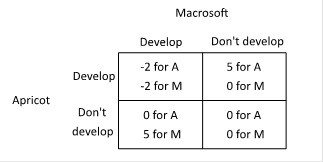Explain Paul Romer's ideas concerning economic growth
What will be an ideal response?
Romer argues that knowledge is a factor of production just as capital and labor are. Economies must invest in education as they do in capital. Past investments in capital make it profitable to acquire more knowledge, implying that investment leads to new knowledge that leads to new investment. There can be an investment-knowledge cycle that continually stimulates economic growth. According to Romer, ideas drive economic growth.
You might also like to view...
High-income countries have ________ and ________ as compared to developing countries
A) high rates of savings; low rates of growth B) high rates of savings; high rates of growth C) low rates of savings; high rates of growth D) low rates of savings; low rates of growth
Suppose two companies, Macrosoft and Apricot, and considering whether to develop a new product, a touch-screen t-shirt. The payoffs to each of developing a touch-screen t-shirt depend upon the actions of the other, as shown in the payoff matrix below (the payoffs are given in millions of dollars).  Suppose Apricot makes its decision first, and then Macrosoft makes its decision after seeing Apricot's choice. What will happen if, before Apricot chooses, Macrosoft announces that it is going to develop a touch-screen t-shirt no matter what Apricot does?
Suppose Apricot makes its decision first, and then Macrosoft makes its decision after seeing Apricot's choice. What will happen if, before Apricot chooses, Macrosoft announces that it is going to develop a touch-screen t-shirt no matter what Apricot does?
A. Apricot will develop a touch-screen t-shirt, and Macrosoft will not because Macrosoft's threat is not credible. B. Both Apricot and Macrosoft will develop a touch-screen t-shirt because neither company will want to back down. C. Neither Apricot nor Macrosoft will develop a touch-screen t-shirt because they will both realize that they are in a no-win situation. D. Macrosoft will develop a touch-screen t-shirt, and Apricot will not because it's not in Apricot's interest to develop a touch-screen t-shirt if Macrosoft also develops one.